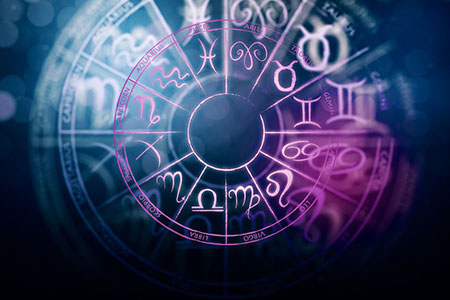Choose Kindness – A Message From My Guides
 In these times of uncertainty, worry and fear, we urge you to step back and let kindness prevail. It is more important than ever to take a breath before reacting to what might normally seem to be an insensitive comment, or blatant oversight.
In these times of uncertainty, worry and fear, we urge you to step back and let kindness prevail. It is more important than ever to take a breath before reacting to what might normally seem to be an insensitive comment, or blatant oversight.
Even people who are usually even-tempered and relaxed can currently be on edge after months of sheltering in place, and it is impossible to understand what every individual may be going through right now, or how difficult their circumstances might be day-to-day. This does not condone their negative behavior, but it does give you an opportunity to rise above the fray, before responding in kind.
Keep in mind that, although everyone is currently in the same boat, each situation is entirely different. One person might have very limited finances, and truly worry about putting food on the table. Another might be a single parent, with children to home school, in spite of having to leave their home every day to also work as a first responder or an essential service worker. No two sets of circumstances are alike, and to each individual their personal challenges will be of paramount importance.
Listen before reacting. Pause. Try to empathize with the other person’s point-of-view, instead of the way it is being presented. Try to see past a short-tempered response, or erratic explanation. A smile and a patient ear will often diffuse a tense situation.
The good news is that the circumstances in your world are gradually improving, and there are many positive occurrences on the horizon. The Sun continues to rise every day, while thousands of scientists and medical experts are working around the world to bring about vaccines and treatments to fight this latest suffering. Millions more have ramped up their service in offering medical, emotional and financial support to those in need. Each day, there is another glimmer of hope in many different parts of the world.
The Healing Energy Of Plants
 Now that so many of us are spending more time in our homes, it has become even more important to consider the principles of Feng Shui.
Now that so many of us are spending more time in our homes, it has become even more important to consider the principles of Feng Shui.
The energy flow in our home affects us in many ways, including our psychical well-being and mental health. One of the easiest, fastest, least expensive and most efficient ways of improving the energy of our home, is the use of plants. Plants add oxygen to the atmosphere and filter toxins from the air, making breathing easier and our environment much more pleasant and healthy.
Plants also have a healing energy that most people can sense. The color green resonates with the heart chakra energy center and it promotes calm serenity and healing, peaceful energy. Adding plants is an easy, affordable way to invite peace and tranquility into your daily life.
The life force in plants will raise the energetic vibration of any room. Plants in the bedroom can improve sleep, for example, while plants in the living room and kitchen can help to absorb radiation from electronic devices. Plants are a quick, inexpensive way of improving the energy in your home and balancing the Feng Shui.
June 2020 Weekly Astro Forecasts
June 1 – 7
The exciting news this week is Friday’s Sagittarius Full Moon and Lunar Eclipse! Lunar and solar eclipses always come in pairs, with one following the other in a period of two weeks. So, this week’s Lunar Eclipse will be followed by a Solar Eclipse in Cancer on June 21st.
Eclipses set the tone for the next six months, so these lunations will usher in a time of focusing on our perceptions of home, family, security and emotional issues. Over the next two weeks, watch for new insights and clarity that emerge from honoring our emotions and tending to our hearts.
Monday’s Libra Moon will cast a centering energy over us all. The Moon will travel through Scorpio on Tuesday and Wednesday, evoking our spiritual and intuitive sides to the surface. The lunar eclipse occurs under a Sagittarius Full Moon (also known as a Strawberry Moon) and asks us to release inhibitions and restrictions that are holding us back.
If we’ve got anything important to accomplish on the home front, Sunday’s Capricorn Moon will give us the energy to tackle and complete unfinished tasks.
June 8 – 14
A nice quiet week awaits, as we move through the two current eclipses occurring in June. Monday’s Capricorn Moon will make this the most productive day of the week, moving us through our tasks and obligations at record speed.
Under Tuesday and Wednesday’s Aquarius Moon, our inventive and social sides will emerge. Focusing on friendships and solutions to current problems, we should be mindful of our emotions and intuitive urgings.
Transmuting The Negative Energy Of Self-Sabotage
 In many religions and spiritual wisdom traditions we find guidelines on healing and mind-body wellness. Many of these philosophies, in conjunction with modern medicine, can be a great aid for mind, body and soul. In all spiritual traditions there are usually rules or recommendations aimed at the well-being of society as a whole, as well as each individual soul. Many of these teachings warn us of dangers we might find in our own thought, choices and actions. And if we are unaware or careless, a damaging thought or action can turn into a harmful pattern.
In many religions and spiritual wisdom traditions we find guidelines on healing and mind-body wellness. Many of these philosophies, in conjunction with modern medicine, can be a great aid for mind, body and soul. In all spiritual traditions there are usually rules or recommendations aimed at the well-being of society as a whole, as well as each individual soul. Many of these teachings warn us of dangers we might find in our own thought, choices and actions. And if we are unaware or careless, a damaging thought or action can turn into a harmful pattern.
Recognizing a damaging thought or behavior pattern in our lives is not easy. We might realize that someone else makes the same mistakes over and over, but it may be difficult to have the same insight about ourselves. We create the imagined walls of our own limitations, and abide by them, without being aware of making this decision. These limiting, destructive thoughts and actions that appear repeatedly in our lives – especially those demeaning, self-sabotaging, angry thoughts – are in essence negative energy vibrations. A few example of such thoughts can be:
I am useless and incompetent.
I am not strong enough.
Nobody cares about me.
I do not deserve better.
I hate myself.
Spiritual Attachment And Detachment
 The physical world is not the only realm in which some of us struggle with issues of detachment (alienation), or attachment (codependency). The same holds true in the spirit realms.
The physical world is not the only realm in which some of us struggle with issues of detachment (alienation), or attachment (codependency). The same holds true in the spirit realms.
If we experience spiritual attachment, this usually happens as a result of an addictive personality. In life, one could be addicted to unhealthy relationships, various substances, shopping, food, and so on. The driving force behind all of these is basically the same – the attempt to fill a perceived void with a substitute.
This inclination can then lead to the presence of negative spirit attachments with addictive energies. Perhaps the spirit entity had the same kind of addiction when it was in physical form, and still needs to experience that ‘high.’
When this happens, the victim in the physical world, to whom the spirit entity has attached itself, may become more stubborn and in denial over the need to change their habits. Many friends and family members who have had to deal with addicts, will tell you that addiction changed their loved one’s personality. From a spiritual perspective this is very true.
Spiritual detachment, on the other hand, happens when someone is the victim of abuse or trauma. A part of themselves ‘detaches’ or becomes distant from their core self, which may unintentionally invite a more powerful spirit presence to enter, to ‘protect’ or ‘guide’ the victim. Aristotle’s phrase ‘nature abhors a vacuum’ comes to mind. It means every space or void in nature always needs to be filled with something. The same holds true in the spirit realm.



Recent Comments